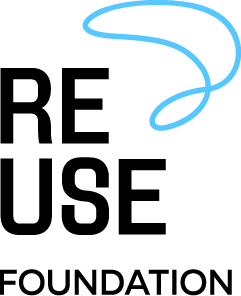Featured
Plastics Seen Materially Reducing Agricultural Yields |
|

|
A new study reveals that microplastic pollution is damaging plants' ability to photosynthesize, leading to an estimated loss of 4%-14% in global staple crop yields, such as wheat, rice and maize. With global agriculture worth $5 trillion a year, the cost of the yield reduction could easily exceed $500 billion annually.
The research, led by Nanjing University in China, used over 3,000 observations drawn from 157 studies of the impact of microplastics on plants, which show microplastics can harm plants in various ways: damaging the soil; blocking sunlight; impeding nutrient and water flow; and introducing toxic chemicals. The report said damage caused by plastics could exacerbate global hunger, potentially increasing the number of people at risk of starvation by 400 million within two decades. While the study emphasizes the urgent need for action to combat plastic pollution, researchers caution that further data is required for more accurate predictions.[Image Credit: © Marco Bubbio via Pixabay] |
Highlights
Aluminium Bottles Tackle Plastic Waste In Home Care |
|
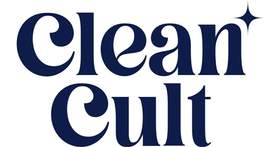
|
Clean Cult launched refillable aluminium bottles for its cleaning and laundry products at over 300 Costco locations and online. Refills come in paper-based cartons, and the products are plant-based and biodegradable. Similar efforts include Ball Corporation’s recyclable aluminium cartridges and Unilever’s acquisition of Wild, a brand using reusable aluminium packs.[Image Credit: © Cleancult]
|
Indonesia Leverages Reuse To Cut Plastic Waste |
|

|
Indonesia is tackling its plastic crisis by prioritizing reuse over recycling, aiming to reduce the 7.8 million metric tons of plastic waste it generates annually. Nearly 5 million metric tons of this is mismanaged and over 1 million metric tons pollutes oceans. Government and civil society groups launched a "reuse road map" to scale refill and return systems across industries. Experts argue that reuse offers a more sustainable solution than recycling, which still dominates global investment. [Image Credit: © Streets of Food on Unsplash]
|
Plastic Recycling Stalls, But Waste And Emissions Rise |
|
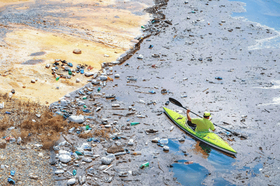
|
Global plastic recycling rates remain stagnant at under 10%, while plastic production surges, with 90% still made from fossil fuels, a 2022 study by Tsinghua University reveals. Researchers highlight economic and technical barriers to recycling, such as contamination and complex additives, and virgin plastic remains cheaper to produce, discouraging investment in recycling infrastructure. The US has the lowest recycling rate at just 5%, while incineration is rising globally as a disposal method, particularly in the EU, China and Japan. Landfill still accounts for 40% of plastic waste. [Image Credit: © Fayegh(Shamal) Shakibayi on unsplash.com]
|
Packaging Rules Push Companies To Cut Plastic Waste |
|
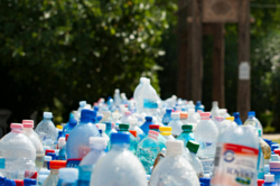
|
Stricter regulations like the EU's Packaging and Packaging Waste Regulation are pressuring companies to reduce plastic waste and embrace sustainable packaging, according to Euromonitor. With plastic representing two-thirds of global packaging, businesses are redesigning packaging to prioritize recyclability, eliminate harmful substances and use more mono-materials. Regulatory shifts also promote reuse/refill systems and discourage single-use plastics. Models like EcoCarga in Chile show how refills can cut consumer costs and plastic use. [Image Credit: © Mali Maeder from Pexels]
|
SC Johnson’s 2024 Report Highlights Plastic Waste Reduction |
|
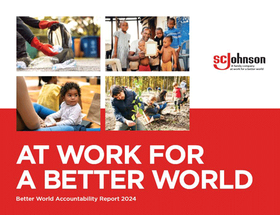
|
SC Johnson’s 2024 Better World Accountability Report showcases the company's efforts in addressing plastic pollution and sustainability. It met its 2025 goals a year early by reducing virgin plastic use and increasing recycled materials in packaging. SC Johnson also surpassed its target of reducing emissions by 70% since 2000 and continues to shift to renewable energy for its operations. The company promotes plastic waste awareness through initiatives like The Blue Paradox exhibit and supports global regulations, including the Global Plastics Treaty. [Image Credit: © S.C. Johnson & Son Inc.]
|
UK Shoppers Alarmed By Microplastic Pollution |
|

|
Microplastics in oceans and waterways are the top concern for 58% of UK shoppers regarding plastic packaging, according to new research by Aquapak. These tiny plastic fragments, formed as packaging breaks down, pose environmental and potential health risks. Landfill, littering, incineration and false recycling claims rank lower among consumer concerns. The study highlights growing public demand for change, with 65% of respondents doubting that brands and retailers are doing enough to reduce plastic use. Most shoppers want plastic replaced with eco-friendly materials, preferring recyclable paper-based packaging and compostable alternatives. [Image Credit: © Sören Funk on Unsplash]
|
Unilever’s Wild's Acquisition Sparks Sustainability Concerns |
|
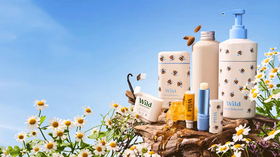
|
Unilever's acquisition of Wild, a brand known for refillable personal care products, raised hopes for broader accessibility to sustainable toiletries. Wild's products, including deodorant and body wash, come in reusable packaging, and refills are delivered in recyclable or compostable materials, helping to reduce plastic waste. Wild claims to have diverted over 750,000 kg of single-use plastic since its inception, but concerns emerged about whether Unilever’s focus on profitability could compromise Wild's sustainability mission. [Image Credit: © Unilever]
|
Microplastics In Human Brains Raise Health Concerns |
|
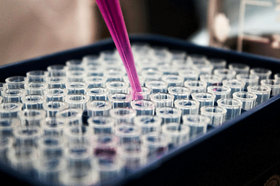
|
Researchers at the University of New Mexico are studying the growing presence of microplastics in human bodies, including brain tissue. Findings, published in Nature Medicine, show that human brains now contain significant amounts of microplastics – about 7 grams or around five water bottle caps' worth per brain - with higher concentrations in those with dementia. While the health impacts remain unclear, the study highlights the increasing accumulation of microplastics in various organs. These particles, primarily from older plastic waste, raise concerns about potential long-term health risks, including neurodegenerative diseases. Researchers are also investigating how microplastics enter the body, with studies linking them to air, water, and food sources.[Image Credit: © Louis Reed on Unsplash]
|
Shareholders Pressure Firms To Do More On Plastic Waste Reduction |
|
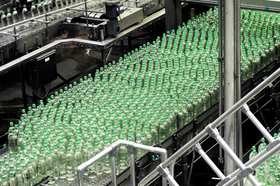
|
Plastic waste is under renewed scrutiny as shareholder resolutions target consumer goods, hospitality and food service companies. Advocacy groups like As You Sow and Green Century Funds are pushing firms to address risks tied to non-recyclable and flexible plastic packaging. Despite voluntary initiatives, companies have made limited progress, especially on recycling flexible films. Some, like PepsiCo and Kraft Heinz, oppose proposals but cite investments in compostable and paper-based alternatives. Reusable packaging also features prominently, with Coca-Cola and Starbucks agreeing to disclose progress after investor pressure. Shareholders are also challenging misleading recyclability claims, urging companies to phase out unclear labeling and improve transparency around recycled content to reduce plastic-related environmental and reputational risks.[Image Credit: © Waldemar on Unsplash]
|
How Nanoplastics Form And Why They’re Dangerous |
|
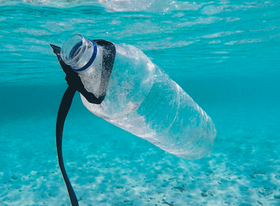
|
New research reveals how plastic breaks down into harmful nanoplastics, posing serious environmental and health risks. Led by Professor Sanat Kumar at Columbia Engineering, the study shows that semicrystalline plastics—used in 75–80% of plastic products—are structurally prone to fragmentation. These materials consist of alternating hard and soft molecular layers. Over time, environmental degradation weakens the soft layers, causing the more durable hard fragments to break off and persist in nature. These microscopic pieces can enter human cells, disrupt DNA and may contribute to diseases like cancer. [Image Credit: © Brian Yurasits on Unsplash]
|
Study Links Brands To Fracking That Feeds Plastic Production |
|
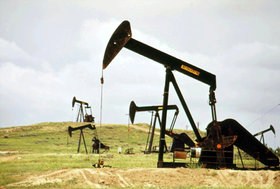
|
New research links plastic waste to its fossil fuel origins, revealing that major consumer brands source plastic from fracked gas in Texas's Permian Basin—a region dubbed a “carbon bomb.” Ethane from fracking is exported to Europe, primarily by petrochemical giants like INEOS, and turned into packaging for companies such as Coca-Cola, Nestlé and Unilever. These supply chains, once opaque, are now more traceable, exposing the environmental toll of plastic production. Campaigners argue that despite Europe rejecting fracking domestically, it continues to import fracking-derived plastics, externalising pollution and health harms. [Image Credit: © Documerica on Unsplash]
|
Chewing Gum Is A Hidden Source of Microplastic Pollution |
|
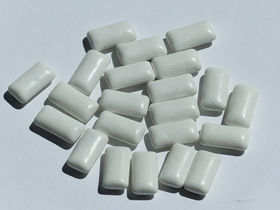
|
Chewing gum can release hundreds of microplastic particles directly into our mouths, according to a new UCLA study. Researchers found that one gram of gum can shed over 100 microplastic fragments, with some brands releasing more than 600. This means frequent gum chewers could unknowingly ingest tens of thousands of microplastics yearly. The study revealed both synthetic and natural gums contain plastic. Though researchers emphasize there’s no immediate health threat, the findings highlight yet another overlooked entry point for microplastics into human bodies. Additionally, improperly discarded gum contributes to plastic pollution in public spaces. The National Confectioners Association highlighted the study authors’ conclusion that "there is no cause for alarm".[Image Credit: © Hans from Pixabay]
|
UK Targets Plastics In Circular Economy Transition |
|
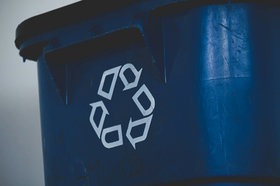
|
The UK Government named chemicals and plastics among five key sectors for its Circular Economy Taskforce to prioritize, aiming to cut waste and boost recycling. Environment Secretary Steve Reed highlighted the need for clearer regulations to help industries transition, with organisations like WRAP, the Chartered Institution of Wastes Management and the Environmental Services Association backing the initiative. Stakeholders stressed the importance of reforms such as digital waste tracking and extended producer responsibility to support reuse and recycling. Reconomy, circular economy specialists, and others called for stable policies to scale circular innovations and reduce plastic waste. [Image Credit: © Sigmund on Unsplash]
|
Coca-Cola’s Growing Plastic Use And Ocean Impact |
|
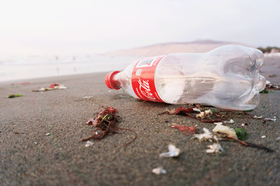
|
Oceana’s new report warns that Coca-Cola’s plastic use could exceed 9.1 billion pounds annually by 2030, a 40% increase from 2018, a rise that could see 1.3 billion pounds of plastic from the company entering the oceans each year, harming marine life. The report argues that recycling won’t solve Coca-Cola’s plastic problem, but increasing reusable packaging could reduce plastic use. Currently, Coca-Cola’s reusable packaging makes up only 10.2% of sales, far below the 26.4% needed to reduce its plastic footprint. Despite a $1 billion investment in recycled content, Coca-Cola’s reliance on single-use plastic continues to harm the environment, drawing public and environmental scrutiny, and a few months ago it discarded its 25% target for reusable packaging. Oceana urges real action from the company and policymakers.[Image Credit: © maria mendiola on Unsplash]
|
Refill Stations Tackle Plastic Waste In Singapore Universities |
|

|
Ecoworks, a sustainable startup, partnered with bio-home to launch a one-year pilot refill station at Singaporean universities, offering students a way to reduce single-use plastic waste. Automated stations dispense plant-based cleaning products into customers' own containers, saving money and cutting down on plastic waste. With Singapore discarding 900,000 tonnes of plastic annually, the refill station provides a more convenient, affordable and sustainable alternative to traditional plastic packaging. [Image Credit: © bio-home by Lam Soon]
|
Unilever’s 2024 Progress On Plastics and Sustainability |
|
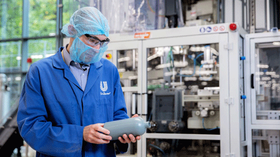
|
Unilever’s 2024 sustainability report highlights key actions in plastic waste reduction as it aims to cut its virgin plastic use by 30% by 2026 and 40% by 2028. Currently, 21% of its packaging uses recycled plastic and 57% is recyclable, reusable or compostable. It’s also focusing on developing alternatives for hard-to-recycle flexible packaging, like sachets. Unilever advocates for global plastic regulations, co-chairing the Business Coalition for a Global Plastics Treaty. [Image Credit: © Unilever]
|
Health Risks Drive Support For Reducing Plastic Production |
|
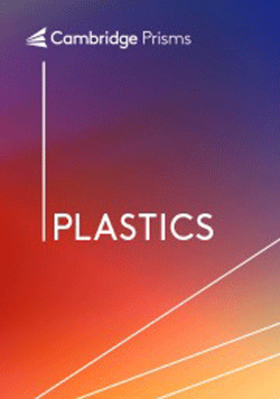
|
A survey, conducted by the London School of Hygiene and Tropical Medicine, of delegates involved in the Global Plastics Treaty negotiations revealed that human health risks are the top concern related to plastic pollution. Delegates prioritized measures to reduce plastic production and eliminate harmful chemicals in plastics, ranking these higher than waste management or recycling improvements. The survey highlighted widespread concerns about the toxic chemicals in plastics, microplastics and their impact on health and the environment. [Image Credit: © Cambridge University Press] |
UK Packaging Tax Could Drive Sustainability, Raise Costs |
|
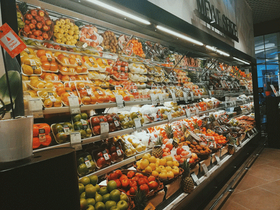
|
The UK’s upcoming Extended Producer Responsibility scheme aims to shift the cost of packaging waste management from taxpayers to businesses, encouraging more sustainable packaging practices. By imposing fees based on the recyclability and weight of packaging materials, businesses will be incentivized to adopt eco-friendly alternatives, such as paper-based packaging. However, concerns exist that some companies may switch to lighter but less recyclable plastics to minimize costs. While the policy aims to enhance recycling systems and reduce environmental impact, it could lead to higher product prices for consumers. Critics also worry that the funds raised might not be properly invested in recycling improvements, potentially undermining the initiative’s goals.[Image Credit: © Damla Özkan on Unsplash]
|
HUL Invests In Lucro To Boost Plastic Recycling |
|
.png?width=280)
|
Hindustan Unilever acquired a 14.3% stake in Lucro, a plastic recycling company, as part of its strategy to meet upcoming packaging regulations. This investment aims to enhance HUL's capacity to recycle and reuse plastic packaging, aligning with India's evolving Extended Producer Responsibility framework. Lucro's proprietary technology enables the recycling of multi-layered and flexible plastic packaging, which are typically challenging to process. [Image Credit: © Unilever]
|
WRAP Supports Ban On Plastic Packaging For Fresh Produce |
|
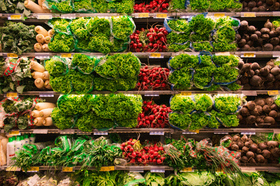
|
WRAP UK is calling for a ban on plastic packaging for 21 fresh produce items, including apples, bananas and potatoes. Only 19% of fresh produce is sold loose in the UK, contributing to 2.5 million tonnes of waste annually, with £4 billion worth of food that could have been eaten. WRAP’s Love Food Hate Waste campaign highlights how packaged produce forces consumers to buy more than needed, increasing waste. Selling more produce loose could prevent 60,000 tonnes of food waste annually. WRAP is using Food Waste Action Week to push for consumer and retailer action, encouraging the sale of loose fruit and vegetables ahead of upcoming food waste collection changes for businesses in England.[Image Credit: © Matheus Cenali on Pexels]
|
UK’s Marine Conservation Society Sees Rise In Beach Plastic |
|
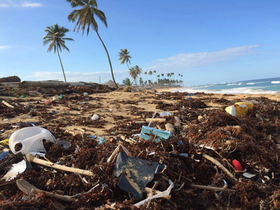
|
The Marine Conservation Society’s State of our Beaches 2024 report reveals a nearly 10% increase in plastic waste on UK beaches compared to 2023. Volunteers collected almost 765,000 pieces of litter, averaging 170 items per 100 metres of coastline. Plastic fragments and single-use plastic packets were the most common items. Calling for stronger policies to reduce single-use plastics and improve waste management, the charity also supports a Deposit Return Scheme starting in 2027.[Image Credit: © Dustan Woodhouse on Unsplash]
|
Global Initiative Seeks New Symbol To Boost Reuse |
|
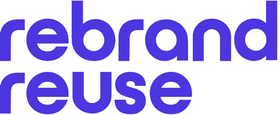
|
Launched by PR3 in the US, the "Rebrand Reuse" initiative invites global designers to create a standard symbol for reusable products and packaging. With only 9% of plastic waste recycled globally, PR3 aims to encourage a shift from single-use packaging to reuse, which could reduce plastic production by 90% and emissions by 80%. The new symbol will help consumers identify reusable items and encourage proper use within a unified system. PR3 is also developing global reuse standards for container design, collection, labeling and washing.[Image Credit: © RESOLVE]
|
